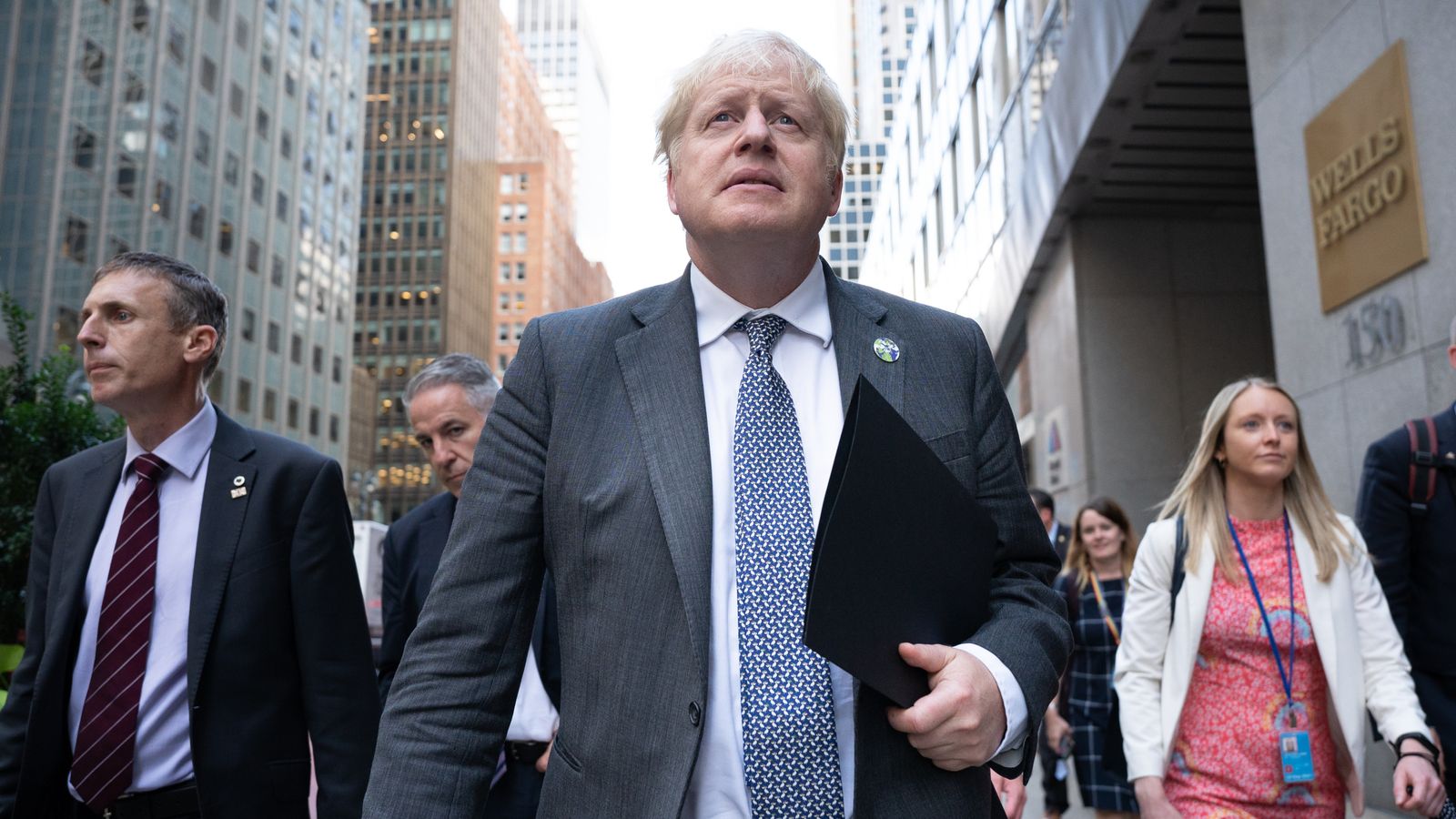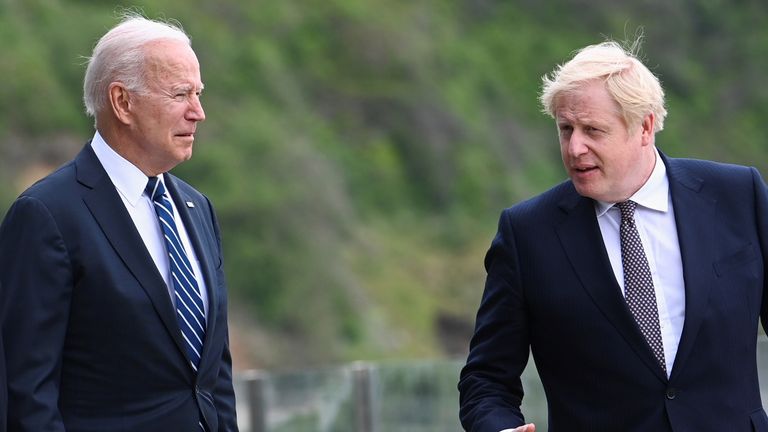Boris Johnson has played down the prospect of an imminent trade deal between the UK and US, saying that Joe Biden has “a lot of fish to fry”.
The prime minister‘s latest comments about a potential trade pact between the two countries are in stark contrast to his remarks four years ago when he was foreign secretary.
Back in 2017 when Donald Trump was US president, Mr Johnson said the UK would be “first in line” for an agreement.
The remark was seen as a pointed rebuke of Barack Obama, after the then-president said in the run-up to the 2016 Brexit referendum that Britain would be at the “back of the queue” for a trade deal if it voted to leave the EU.
But speaking as he prepared for his first White House meeting with Mr Biden, the PM suggested the president has more pressing issues to contend with.
“On the FTA [free trade agreement], the reality is that Joe has a lot of fish to fry,” Mr Johnson told reporters travelling with him to the US on RAF Voyager.
“He’s got a huge infrastructure package, he’s got a build back better package. We want to do it, but what we want is a good FTA, a great FTA.”
The PM, who is expected to press Mr Biden to get the talks going when they meet in the Oval Office, added that he would “much rather get a deal that really works for the UK than get a quick deal”.
And he said there had been recent progress in a number of areas already, with “British beef back in the USA, no more tariffs on whiskey, the Airbus/Boeing issue solved”.
Mr Johnson will also meet with vice president Kamala Harris when he is in Washington.
He will travel there by train from New York, where he has been attending the UN General Assembly.
There was a boost for the PM ahead of his meeting with the president when the US announced it would be dropping its ban on travellers arriving from the UK and EU in November.
And John Kerry, Mr Biden’s climate envoy, suggested to Sky News on Monday that the US could be set to announce more money to fight climate change.
Mr Johnson has been pressing fellow leaders to renew their efforts to meet a key financing pledge to help developing nations cut their carbon emissions and shield themselves against climate change.


